Cantaloupe is a seasonal fruit and grows on the vine. Its yellow skin, green flesh, and sweet taste make it an ideal addition to salads and summer drinks.
Cantaloupe is a delicious and refreshing fruit that is a member of the melon family. With its sweet, juicy flesh and fragrant aroma, cantaloupe is a favourite among fruit lovers worldwide. It is rich in vitamins A and C, potassium, and other essential nutrients.
The taste of cantaloupe is sour, unlike other fruits. Cantaloupe is a highly popular melon worldwide, with many different ways to prepare and consume it. However, not all cantaloupes have the same taste. We will provide information on determining if a cantaloupe is ripe and how long it can be stored in the refrigerator.
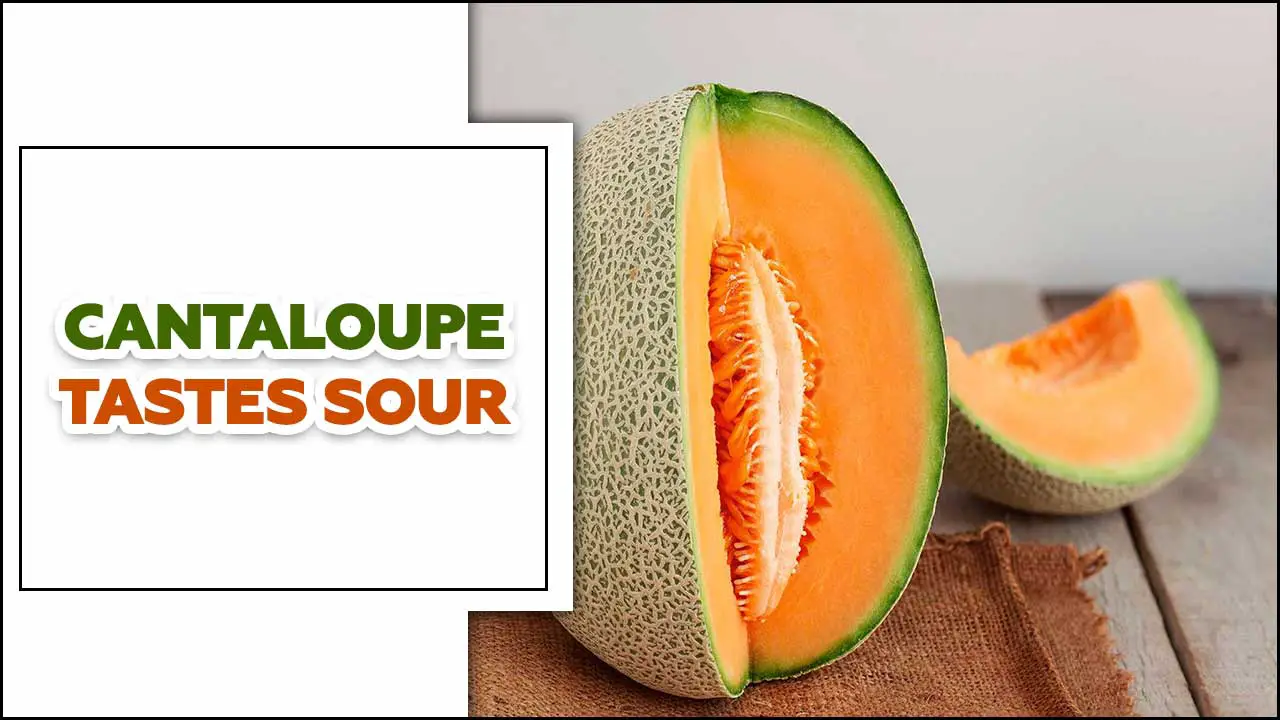
Contents
- 1 Cantaloupe Tastes Sour – Essential Guide!+
- 1.1 When Does Cantaloupe Taste Sour?
- 1.2 Why Cantaloupe Taste Sour?
- 1.3 Can I Eat Sour Cantaloupe?
- 1.4 How Do I Know If My Cantaloupe Is Bad?
- 1.5 Why Does My Cantaloupe Smell Like Vinegar?
- 1.6 What Does Bad Melon Taste Like?
- 1.7 Can You Get Sick From Eating Overripe Cantaloupe?
- 1.8 What Does Overripe Cantaloupe Taste Like?
- 1.9 When Should You Not Eat Cantaloupe?
- 1.10 How Long Does Cantaloupe Last On The Counter?
- 1.11 How Long Does Cantaloupe Last In The Fridge?
- 1.12 What Does Cantaloupe Smell Like?
- 1.13 How To Tell If A Cantaloupe Is Unripe
- 1.14 How To Tell Cantaloupe Is Bad?
- 1.15 How To Store Cantaloupe
- 1.16 What To Do With Sour/Bitter Cantaloupe?
- 1.17 Frequently Asked Questions [FAQs]
- 1.18 Is Cantaloupe Supposed To Taste Sour?
- 1.19 How Do You Know If Cantaloupe Has Gone Bad?
- 1.20 Why Does My Cantaloupe Taste Funky?
- 1.21 Why Does My Cantaloupe Taste Bitter?
- 1.22 Can Spoiled Cantaloupe Make You Sick?
What Is Cantaloupe?
Cantaloupe, also known as muskmelon, is a delicious and nutritious fruit that belongs to the melon family. It is round or oval in shape, with a rough, netted skin that can vary in colour from green to yellow.
Cantaloupe has hard and fibrous skin but has soft and juicy flesh that tastes fruitier when eaten. It grows on vines with 10 to 20 fruits growing in one cluster. Consumption of cantaloupes usually brings out the most common symptoms like heartburn or sour mouth due to the chemical citric acid inside the fruit.
But if left untreated for long enough may result in diarrhea, stomach cramps, vomiting, or even death from dehydration. Therefore, we have some dos and don’ts in consuming this fruit: Cantaloupe is naturally sour. It is best to discard unused portions of the cantaloupe after cutting into small pieces or eating it fresh when not defrosted.
Cantaloupe Tastes Sour – Essential Guide!+
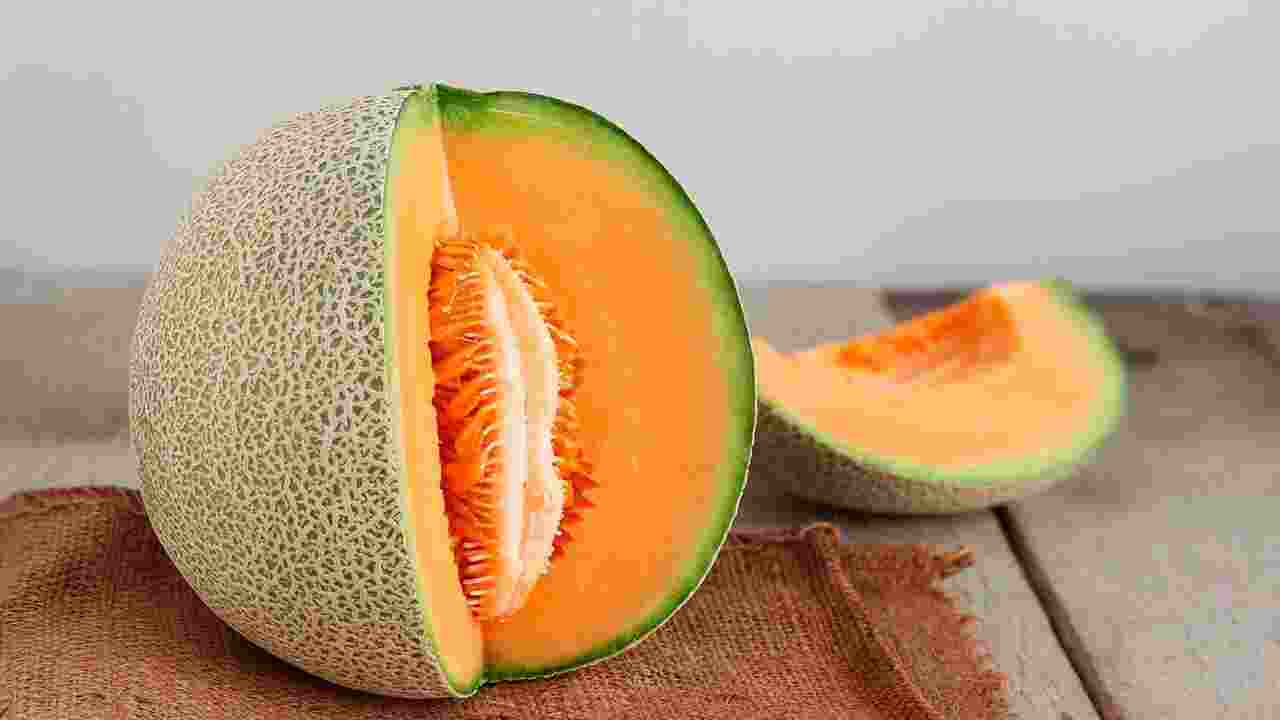
Cantaloupe is a delicious and refreshing fruit staple in many households. However, if you’ve ever bitten into a cantaloupe only to find it tastes sour, you should know a few things.
First, cantaloupes that are not fully ripe may taste sour or bland. To ensure that your cantaloupe is perfectly ripe, look for one with a golden colour and a sweet aroma. Another reason your cantaloupe might taste sour is cross-contamination during storage or transportation.
Cantaloupes can easily pick up bacteria from other fruits and vegetables, which can cause them to spoil more quickly and develop an unpleasant taste. Store your cantaloupes separately from other products and wash them thoroughly before eating to avoid this issue.
And if your cantaloupe still tastes sour despite taking these precautions. It’s best to discard it and try again with a fresh one. With these tips in mind, you’ll be able to enjoy the sweet melon and juicy flavour of cantaloupe every time.
When Does Cantaloupe Taste Sour?
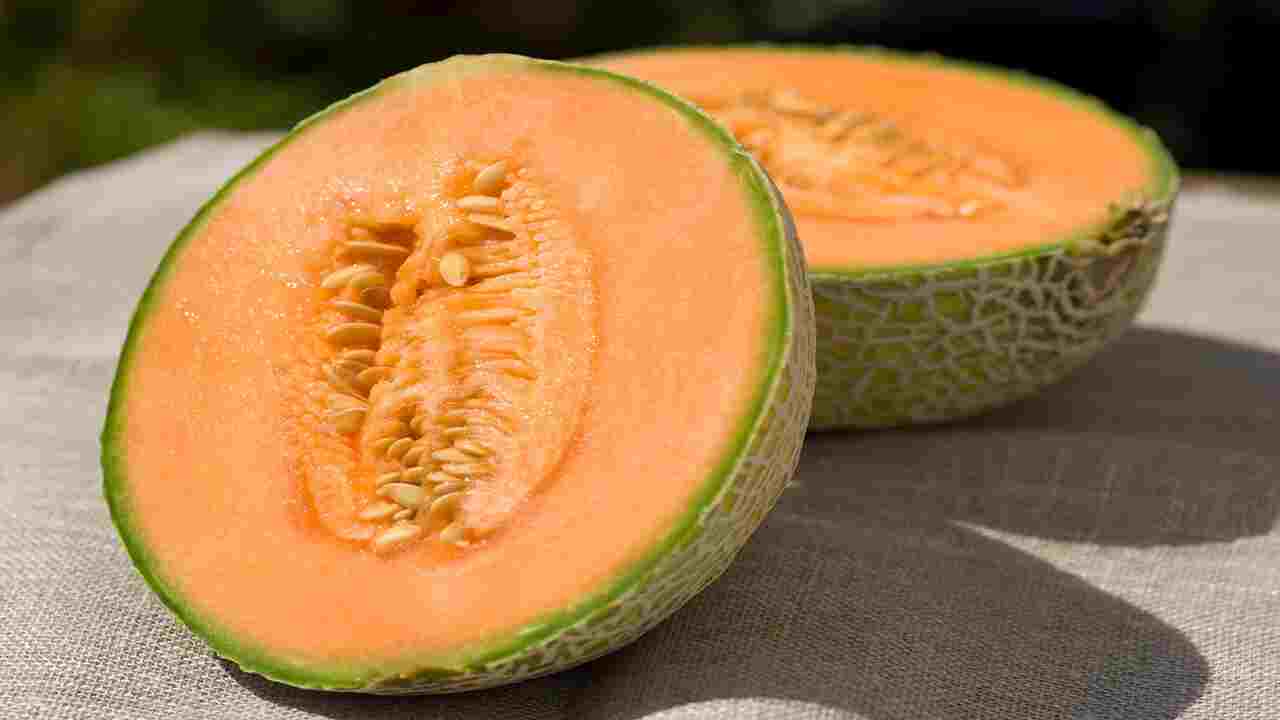
Cantaloupe’s bitterness increases with ß-congeners. In other words, the more ripening you have at room temperature. Usually, Cantaloupe tastes sour, as if it’s matured for some time.
We may find its fastest-growing point if we observe fresh cantaloupes growth on vines. It is on the tops of leaves but toward tips and ends during ripening weeks when seeds appear.
Why Cantaloupe Taste Sour?
Cantaloupes are among the most important fruits in both North American and European cuisines. However, it is notorious for its ideal growth conditions and extremely high trigger factors that cause the fruit to change.
After long exposure but swallowing or eating too much of this product. If not taken immediately while the plant ripens, it begins to spoil by mouldy water-producing fungi like Botrytis cinerea. Botrytis cinerea produces toxins and other substances with strong odours in the fruit. An intense sour smell can be noticed upon consumption.
To confirm our observations, we must compare a fresh cantaloupe’s growth with those stored at room temperature. If it causes symptoms of nausea or pain when eaten between 3 hours and 8 days after exposure. This means it’s spoiled by mildew bacteria, causing illnesses like scalded.
Can I Eat Sour Cantaloupe?
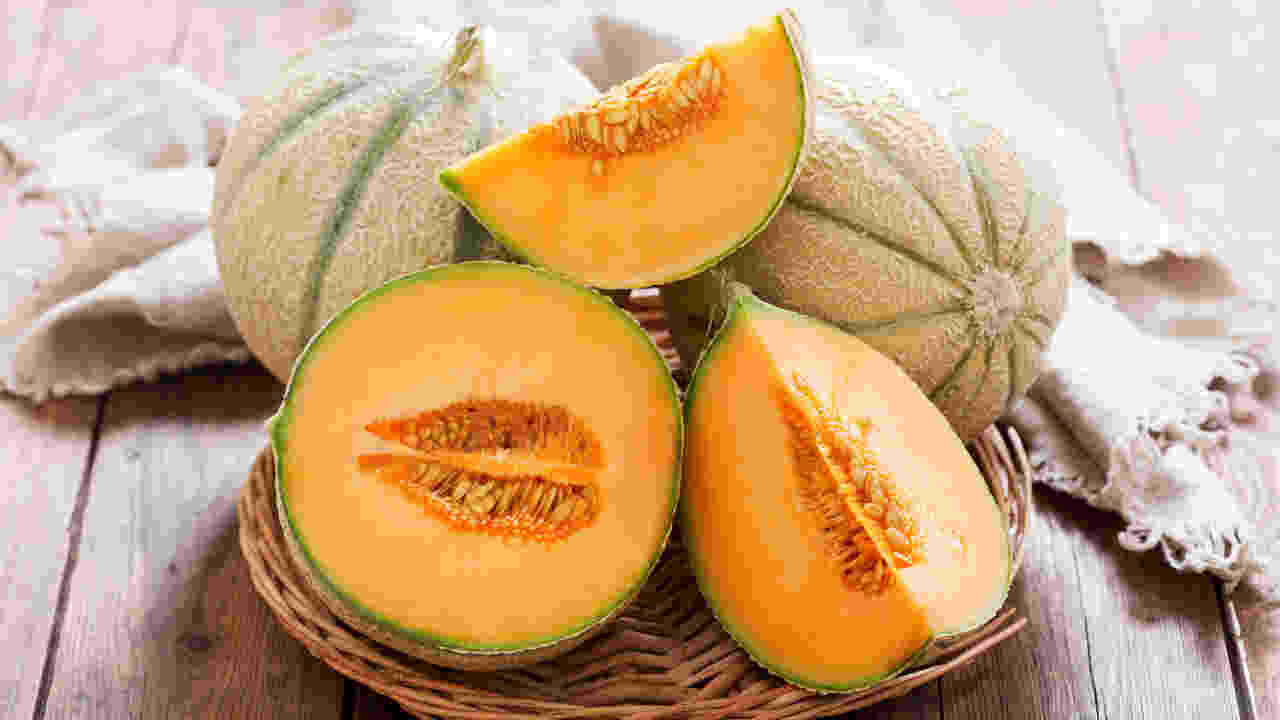
While eating sour cantaloupe may not be the most pleasant experience, it is generally safe to consume. The sour taste indicates that the fruit is overripe or stored improperly. However, the cantaloupe should be safe to eat if there are no visible signs of spoilage, such as mould or an unusual texture.
It’s important to note that sourness is not a sign of foodborne illness. Consuming spoiled or contaminated food can cause food poisoning and other health issues. To avoid potential risks, always properly store and handle your fruits and vegetables and discard anything that appears spoiled or past its prime.
How Do I Know If My Cantaloupe Is Bad?
Determining if a cantaloupe is bad can be tricky, but there are a few telltale signs to look out for. Firstly, give the cantaloupe a good sniff. If it has a sour, unpleasant odour, it’s likely gone bad. Next, check the skin for any mould or soft brown spots. If you see either of these things, then it’s best to avoid eating it altogether.
Another way to check if a cantaloupe is bad is by pressing on the end opposite the stem. If it gives in easily and feels mushy, it’s definitely past its prime. Lastly, if you’ve had the cantaloupe for over a week or two. It’s probably time to toss it out and get a fresh one. Stay safe and enjoy your fresh produce.
Why Does My Cantaloupe Smell Like Vinegar?
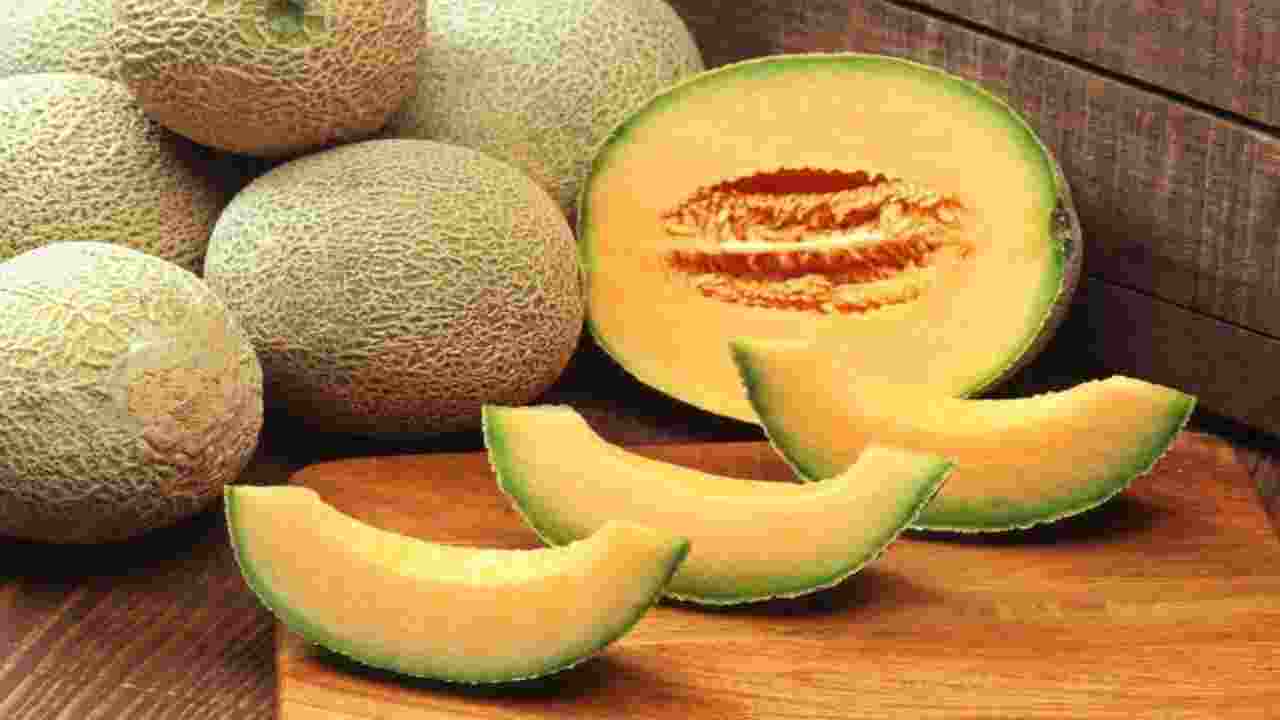
If your cantaloupe smells like vinegar, it’s likely due to bacteria. Bacteria can grow on the surface of cantaloupes and other melons, especially if they are not stored properly. As the bacteria break down the fruit, they release compounds that give off a sour or vinegar-like odour.
To prevent this from happening, it’s important to store your cantaloupes in a cool, dry place and wash them thoroughly before cutting into them. It’s also a good idea to cut away any bruised or damaged areas of the fruit before consuming it.
While a vinegar smell may be unpleasant, it doesn’t necessarily mean that the cantaloupe is unsafe to eat. But if you notice any other spoilage, such as mould or sliminess. It’s best to err on caution and discard the fruit.
What Does Bad Melon Taste Like?
Bad melon can have a variety of unpleasant tastes depending on the specific type of melon and how long it has been sitting out. Some common flavours associated with bad melons include bitterness, sourness, or a spoiled taste.
In addition to the off-putting taste, bad melon may have a mushy texture or develop mould on its surface. To avoid experiencing the unpleasant taste of bad melons. It is important to properly store and handle melons to ensure they stay fresh and tasty.
When selecting a melon, look for signs of ripeness, such as a sweet aroma and slightly soft texture. If you suspect your melon has gone bad, it is best to err on caution and discard it rather than risk consuming spoiled fruit.
Can You Get Sick From Eating Overripe Cantaloupe?
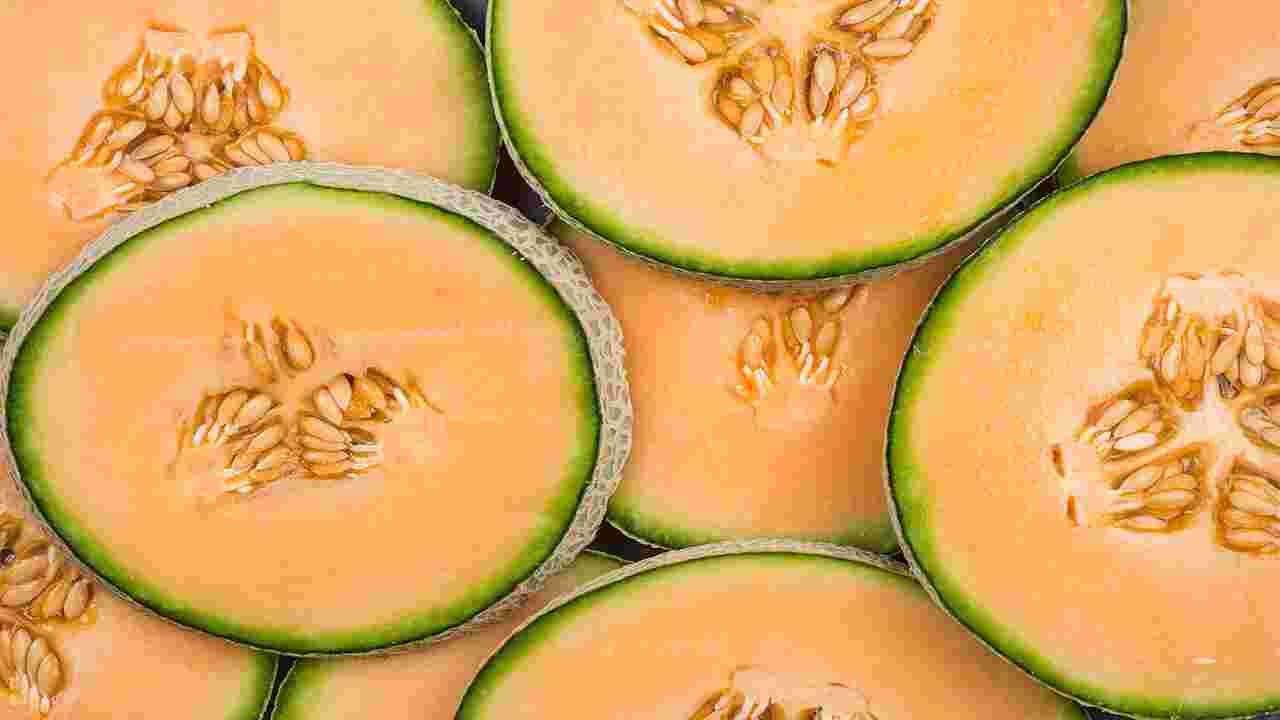
Yes, most bacteria grow in water that remains when you make cantaloupes ripen (they develop inside the can and below the green skin). Chilling food like overripe melons is extremely important because this inhibits this growth.
Remember: usually, brine or sugar builds bacteria at room temperature. If softening takes longer than required for proper use, raise the temperature by about 3-4 degrees Celsius without boiling hot air kettle anymore.
What Does Overripe Cantaloupe Taste Like?
Overripe cantaloupe has a distinctive taste and texture that can be quite unpleasant. When a cantaloupe is overripe, it becomes mushy. And may even start to ferment, giving it a sour or alcoholic flavor.
The fruit’s flesh may also take on an unappealing colour and become stringy or watery. In short, overripe cantaloupe is not a pleasant experience for the taste buds. Choosing a ripe bad cantaloupe with a firm texture and sweet aroma is best to ensure the most enjoyable eating experience possible.
When Should You Not Eat Cantaloupe?
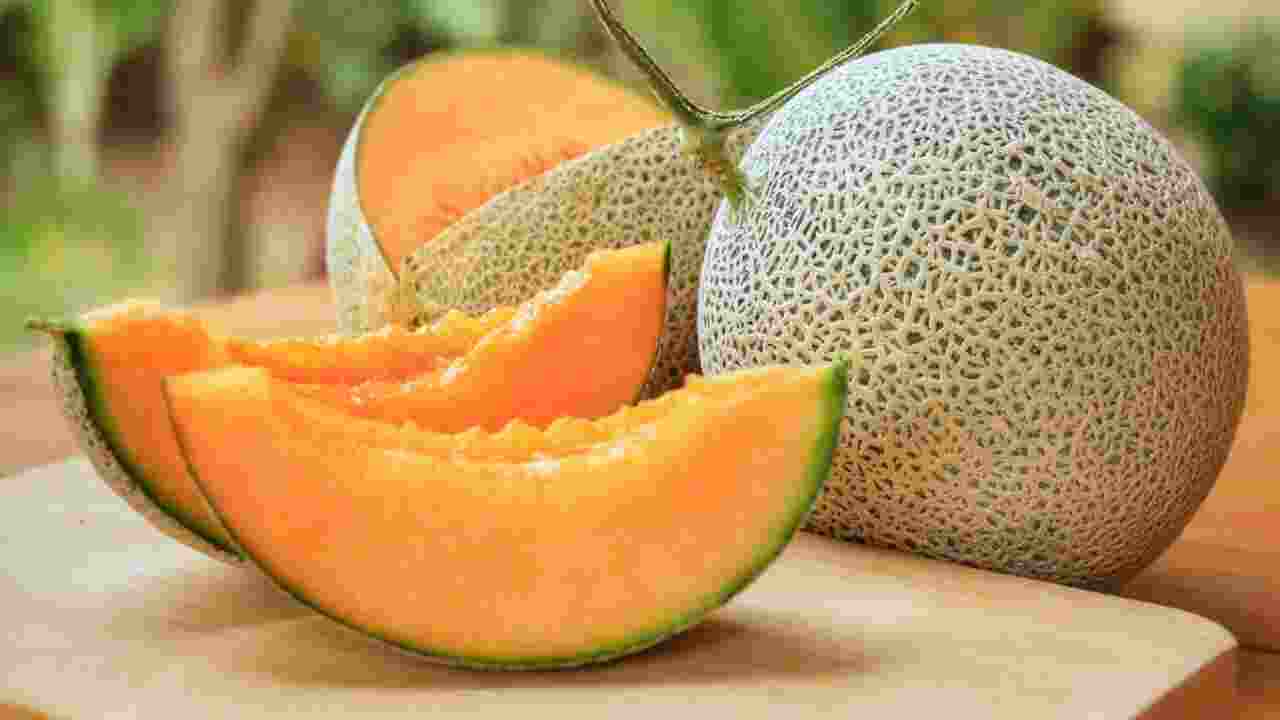
Cantaloupe is a tasty and nutritious fruit that is enjoyed by many. However, there are times when you should avoid eating it. One of the main reasons to avoid cantaloupe is if it is past its prime or has gone bad.
Signs of spoilage include a soft or mushy texture, an unpleasant odour, or mould growth on the skin. Consuming spoiled cantaloupe can lead to food poisoning, which can cause symptoms such as nausea, vomiting, and diarrhoea.
Additionally, if you have a melon allergy or sensitivity, you should avoid cantaloupe. Symptoms of an allergic reaction can range from mild itching and swelling to more severe symptoms like difficulty breathing and anaphylaxis.
Finally, if you are on a low-carbohydrate diet or trying to manage your blood sugar levels. You may want to limit your intake of cantaloupe due to its relatively high sugar content. In general, if you’re looking for a delicious and healthy snack, fresh and ripe cantaloupe is an excellent choice.
How Long Does Cantaloupe Last On The Counter?
It is not recommended to leave cantaloupe on the counter for an extended period of time, as it can quickly spoil and become unsafe to eat. Generally, a ripe cantaloupe lasts 2-3 days when stored at room temperature. However, this can vary depending on ripeness, humidity, and temperature.
To extend the shelf life of your cantaloupe. It is best to store it in the refrigerator, which lasts up to 5 days. Also, it is important to properly wash and dry your cantaloupe before storing it.
It prevents any bacteria or mould from growing on its surface. By following these simple tips, you can ensure that your cantaloupe stays fresh and delicious for as long as possible.
How Long Does Cantaloupe Last In The Fridge?
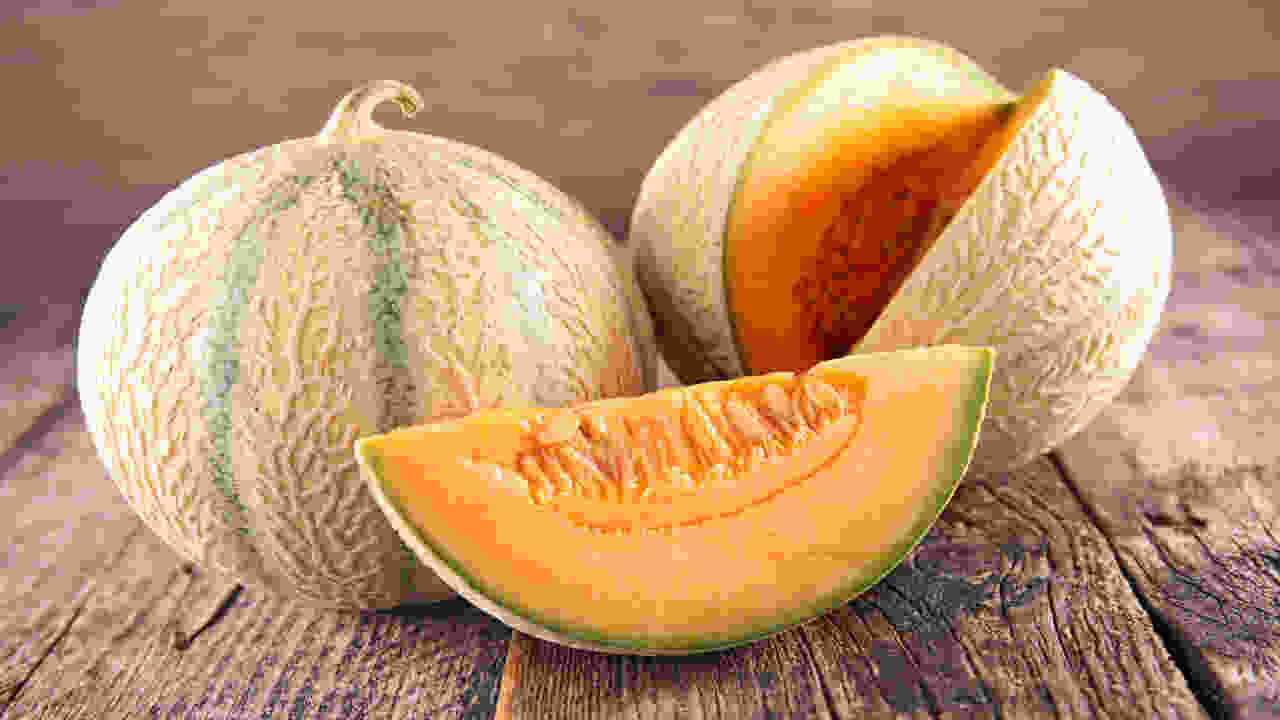
Cantaloupe is a delicious and healthy fruit that can be enjoyed in many ways. If you are wondering how long cantaloupe lasts in the fridge. The answer is typically between 5-7 days if stored properly.
To keep your cantaloupe fresh for as long as possible, storing it in a cool, dry place such as the refrigerator is important. Once cut, cover the exposed flesh with plastic wrap or store it. It is in an airtight container to prevent moisture loss and bacterial growth.
If you notice any signs of spoilage, such as mould or a foul odour, it’s best to discard the fruit immediately. Following these simple storage tips, you can enjoy your cantaloupe for several days and add a healthy snack to your daily routine.
What Does Cantaloupe Smell Like?
Cantaloupe has a distinctive sweet aroma that is a combination of floral and fruity notes. When ripe, the melon emits a strong, recognizable, and pleasant scent. The cantaloupe’s aroma often indicates its ripeness, as unripe melons will have little to no smell.
To fully experience the delicious flavour and fragrance of cantaloupe, it is best to choose a fruit that is fully ripe and ready to eat. So next time you’re at the grocery store or farmer’s market, give the cantaloupes a good sniff to find the perfect one.
How To Tell If A Cantaloupe Is Unripe
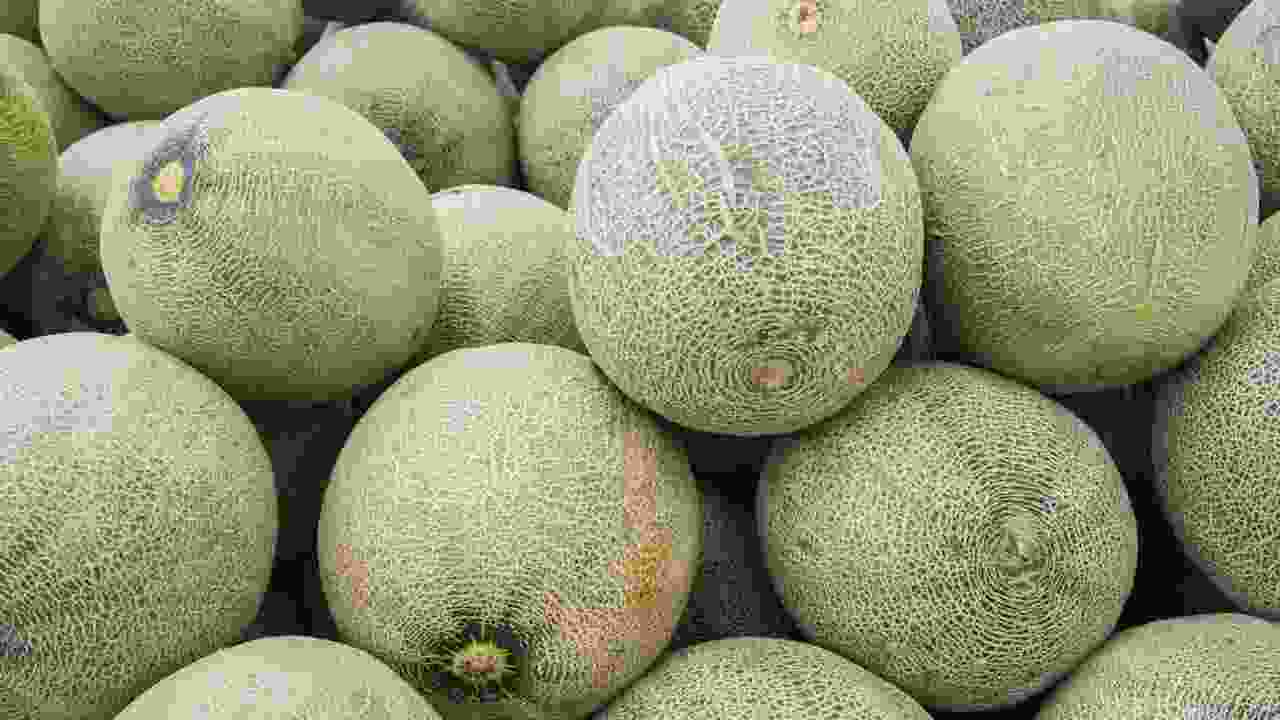
Examining a cantaloupe’s skin is one of the easiest ways to tell if it is unripe. An unripe cantaloupe will have a greenish hue, and the skin will feel hard and smooth. Another way to determine ripeness is by sniffing it – an unripe cantaloupe won’t have that sweet, musky aroma that indicates it’s ready to eat.
If you’re still uncertain, gently press on the end opposite where the stem was attached – an unripe cantaloupe will give very little, while a ripe one will be slightly soft. It’s important to note that once a cantaloupe is picked, it won’t continue to ripen like some other fruits. So choosing one already ripe for optimal flavor and texture is best.
Once it reaches a ripeness level you’re comfortable with, cut it in half and enjoy! The interior should be bright and smooth, without browning or spotted areas. If you’re unsure when your Cantaloupe is ripe, ask a friend or check the colour – cantaloupes that are a deep orange are usually ripe, while cantaloupes that are a lighter orange are still unripe. So, mark your calendar for the next cantaloupe hunt and enjoy.
How To Tell Cantaloupe Is Bad?
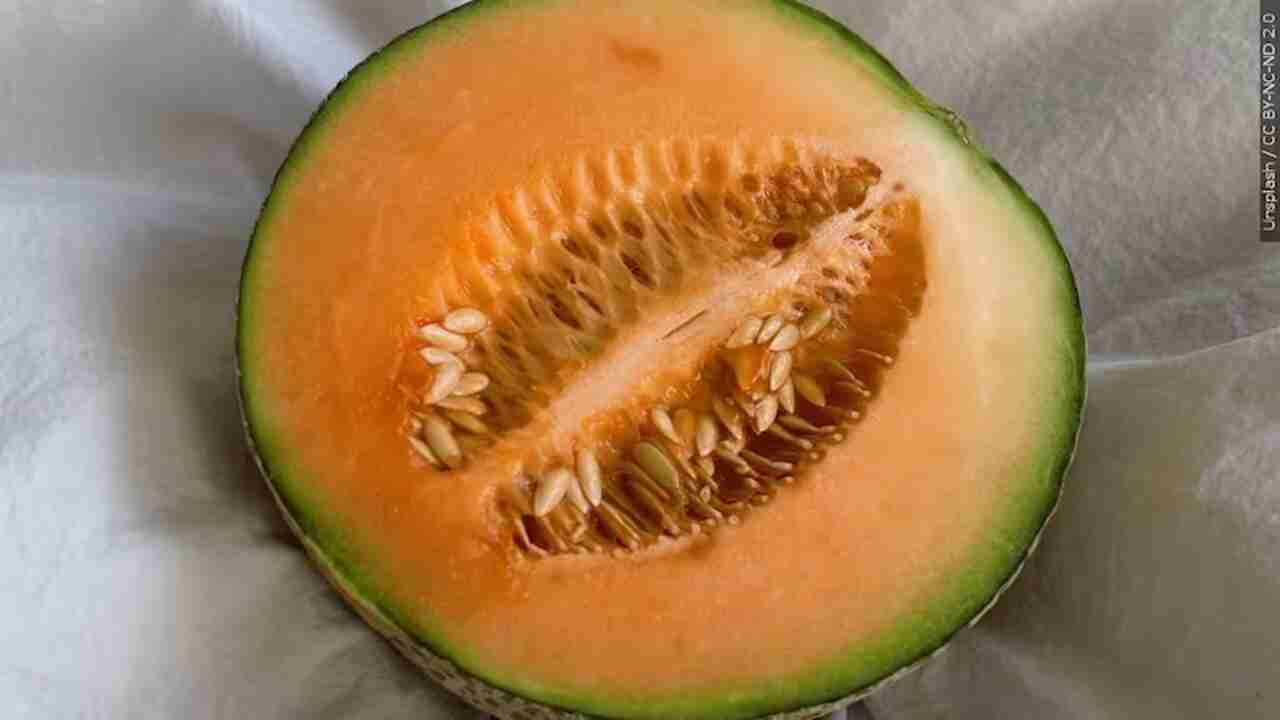
When identifying whether a cantaloupe is bad, there are a few key things to consider. Firstly, check the cantaloupe’s skin – if it appears overly soft or mushy, this is a sign that the fruit may have gone bad.
Additionally, if you notice any mould or discolouration on the surface of the fruit, it’s best to avoid it altogether. Another way to tell if a cantaloupe is bad is by checking its smell – if it has an unpleasant or sour odour, this could indicate that the fruit has begun to spoil.
Finally, give the cantaloupe a gentle press with your fingers – if it feels too soft or squishy, this is another sign that it may have gone bad. By following these tips, you can ensure that you only consume fresh and delicious cantaloupes every time.
How To Store Cantaloupe
Cantaloupe season is here! And with it comes the sweet, luscious fruit – but be warned, it can taste sour! Cantaloupe can be stored in the fridge for up to four days, but try to eat it within three days for the best taste.
If you can’t eat it within that time frame, submerge it in cold water or place it inside a vegetable crisper covered with plastic wrap and foil. No matter how you store your Cantaloupe, eat it as soon as possible to get the best taste.
What To Do With Sour/Bitter Cantaloupe?
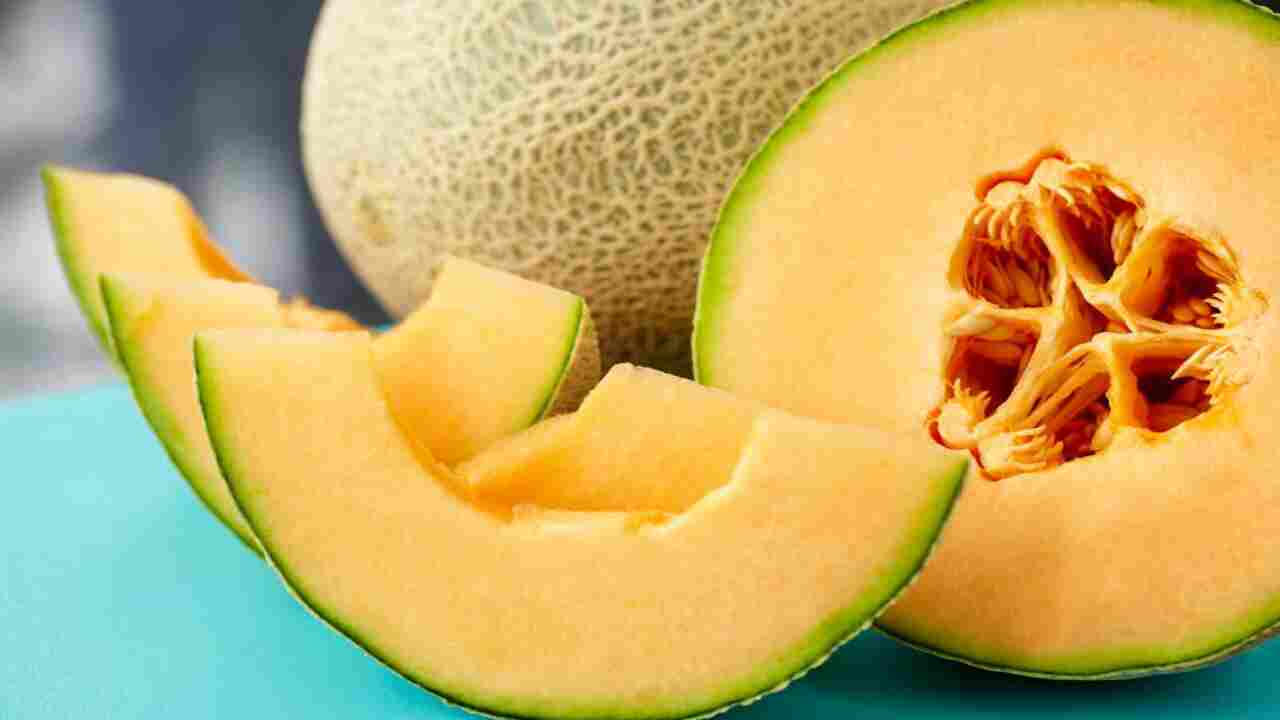
Cantaloupe, also known as muskmelon, is a refreshing and delicious fruit that is loved by many. However, there may be instances when you come across a sour or bitter-tasting cantaloupe.
While it can be disappointing to bite into a less-than-perfect piece of fruit, you can still do several things with a sour cantaloupe to salvage this fruit and turn it into a delicious treat. With these easy solutions, you can transform your sour or bitter melon cantaloupe into something tasty and enjoyable.
- One option is to cut the cantaloupe into small cubes and mix it with honey and lime juice. This will help balance out the sourness and bitterness of the fruit and create a sweet and tangy flavour.
- Another option is to blend the cantaloupe with some yoghurt, ice, and sugar for a refreshing smoothie.
- Lastly, you can roast the cantaloupe in the oven with olive oil, salt, and pepper for a unique and savoury side dish.
Conclusion
The taste in cantaloupes can vary depending on a few factors. The ripeness of the fruit plays a significant role in its flavour, especially sour flavour. A perfectly ripe cantaloupe will have a sweet and refreshing taste that is highly enjoyable.
However, if the fruit is not fully ripe, it can taste slightly sour or even bland. Another factor that may contribute to the sour taste of cantaloupe is if it has gone bad. Mould, discolouration, and a sour smell are all signs that the fruit may have spoiled and should be avoided.
If you end up with a sour or bitter cantaloupe, there are ways to salvage it. Cutting it into cubes and mixing it with honey and lime juice can help balance the flavours. Blending it into a smoothie with yoghurt, ice, and sugar can also make it more enjoyable. Ultimately, storing your cantaloupe properly and consuming it within a few days for the best taste is important.
Frequently Asked Questions [FAQs]
Is Cantaloupe Supposed To Taste Sour?
No, cantaloupe is not supposed to taste sour. Cantaloupe is a type of melon that is typically sweet and slightly tangy. If a cantaloupe tastes sour, it may be unripe or spoiled. Choosing a firm, aromatic cantaloupe with a golden or orange colour is best for optimal sweetness.
How Do You Know If Cantaloupe Has Gone Bad?
Its appearance, smell, and texture tell if a cantaloupe has gone bad. It is likely spoiled if the skin has become mushy, discoloured, or mouldy. A strong, unpleasant odour is also an indication of spoilage.
Why Does My Cantaloupe Taste Funky?
Your cantaloupe may taste funky due to several possible reasons. One reason could be overripeness, where the fruit becomes overly ripe and starts to ferment, resulting in an off-flavour. Another reason could be improper storage or handling, leading to bacterial growth or contamination.
Why Does My Cantaloupe Taste Bitter?
Cantaloupes can taste bitter for several reasons. One possibility is that the fruit was underripe when harvested or picked too early. This can result in a bitter taste and lack of sweetness.
Can Spoiled Cantaloupe Make You Sick?
Yes, spoiled cantaloupe can make you sick. When a cantaloupe is spoiled, it can become contaminated with bacteria such as Salmonella or Listeria, which can cause foodborne illnesses.
